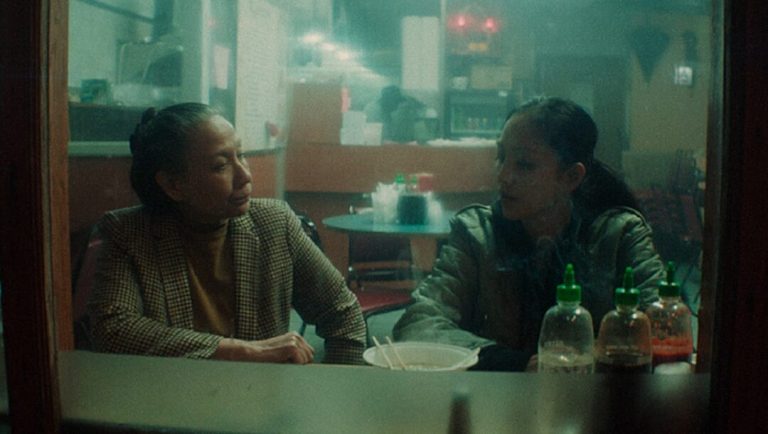“The Piano” (1993), directed by Jane Campion, chronicles the journey of a deeply repressed woman, who silently protests against patriarchy. The protagonist of The Piano is Ada (Holly Hunter), a mute woman who overcomes her silence with musical waves through the piano’s black and white Keys. In her childhood, Ada lost her voice somewhere in the closed rooms of male authority. Ada is rebuilding her lost voice through the piano.
The film even opens with the heroine lamenting, “The voice you hear is not mine, but the voice of my mind. I haven’t spoken since I was six. No one knows why, not even me.” Despite initially hearing the voice of Ada’s inner self, silence overwhelms the narrative.. After watching the movie, we will realize that this silence is the flame of struggle against patriarchy.
Ada gave birth to a daughter before getting married. Her name is Flora (Anna Paquin). Later, Ada’s father gives Ada in marriage to a landlord named Alisdair Stewart (Sam Neill). Stewart is a man who does not care about his wife’s silence. The man’s response was, “If God loves dumb creatures, why should I stand in the way?” He isn’t bothered by Ada’s silence. In fact, it’s not important to him. His sole aim was to buy land on an unknown island. Stewart finds pleasure in watching the boundaries of his empire grow and expand.
Ada’s most cherished possessions are her piano and her six-year-old daughter, Flora. The piano represents her repressed emotional universe, and Flora is her sense of openness to the world. Ada attempts to channel her emotions through the piano and marks her thoughts through Flora. Ada shrinks herself into the piano’s keys when overwhelmed by grief, despair, and fear. Flora turns Ada’s sign language into spoken language for the others. We see the piano and Flora dancing around Ada as she discovers her romantic world.
The boat that brought Ada, her piano, and Flora left them on the island’s shore, full of mud and jungle. No one was waiting for them on the empty shore of the island, which was endless and eerily silent. After they spend a whole night on the beach, Stewart and his friends come to collect her. The director first hints at their attitude towards the island and their subsequent life with a single shot of Flora vomiting on the beach amidst the silence of the island.
Stewart arrives the next morning but forces Ada to give up her piano. He is mainly thinking of the labor cost to bring it home. The piano, orphaned on a long deserted beach, is actually the real identity of Ada, which her husband rejects. Moreover, the piano is also a symbol of Victorian culture. By rejecting it, Stewart is also trying to introduce Ada to the wild culture of the island. Remember that the time of the story is set in the 19th century.
Flora tries to have her existence outside of Ada. Flora, who has no distant memories of her birth or her father, creates myths about it.
She narrates that her father is a famous German composer, and once her father and mother met at a concert, and her mother’s song connected them. Of course, this singer – the mother of Flora – has not spoken since the age of six. Director Campion suggests that Flora is the only thing that connects Ada to the spoken word, her language. These myths show us that a songstress is lying in Ada’s dreams. Ada’s silence need not be looked for elsewhere. Ada is rejecting the world that she doesn’t like. That’s why Ada reveals that “most people speak rudely; it’s not worth listening to.” Ada’s life is always trapped in the prison of man, whether it is a father or a husband. No door of love or comfort opens to her. Therefore, Ada’s silence should be marked as a silent protest against male supremacy.
Stewart is unable to comprehend Ada’s inner desires. He has no hint of love or lust as he only sets out to build a boundless empire. The man does not arouse Ada’s passion, even with a slight touch. Ada’s love is stuck inside her closed dark mind. It escapes as piano music. But George Baines (Harvey Keitel) finds a way into Ada’s closed romantic mind. Baines is a friend of Stewart. Recognizing Ada’s relationship with the piano, he gives Stewart eighty acres of his land and acquires the piano (still stranded on the beach). Baines also makes a deal with Ada that she can earn back her piano if she gives him piano lessons every day.
Due to her unquenchable passion for her piano, Ada reluctantly gives in. But Baines has ulterior motives. Soon, Ada embarks on a passionate love affair with George Baines. Nevertheless, the uneducated and uncultured Baines laments, “My attachment to you makes you a whore and makes me wretched.” He desires not just Ada’s body but her mind and love. So he returns the piano to Ada without getting paid. This gesture shows that Baines is not on the side of traditional male chauvinism. Because of that, we can only assume that Ada’s life should be safe in the hands of Baines.
The director foreshadows this with the footsteps of Baines walking up to the footsteps of Ada and Flora walking along the beach on the same path. But Stewart reads the same through a different lens. Stewart saw Baines’ move as a move to reclaim the eighty acres. He informs Baines that it won’t work. Stewart’s problems end when Baines promises not to return it.
But Stewart later discovers the bond between Ada and Baines. He recognizes it as a severe wound to his masculinity. Stewart attempts to assert his dominance by trying to rape her. His attempt to sever her relationship with Baines also fails. But Stewart cuts off one of Ada’s fingers and sends it to Baines as a warning. Still, he could not break Ada’s bond with Baines, who met him daily. However, he soon loses Ada forever. Also, we see Ada trying to recover her speech. It means that she has achieved the voice of love and equality. It means that she came out of the closed room of male dominance.
Finally, Ada leaves the island with Baines. While leaving, Ada asks him to leave her piano in the sea. It could be because the piano is now a haunting memory of her past. The rope of the piano thrown into the sea gets stuck, and Ada also throws herself into the sea. But she decides not to drown herself and fight back. The image of Ada catching her breath in the depths of the sea will remain in the hearts of the audience as a trembling memory for a long time. She knows that what she left at sea is her enslavement. Even though she has entered her love life, the piano visits her like a nightmare, which could be considered a reminder of old burdens.

![JJ+E [2021] Review: Refreshing and Unlikely Teenage Romance Will Surprise You](https://79468c92.delivery.rocketcdn.me/wp-content/uploads/2021/09/JJE-Vinterviken-3-768x512.jpg)




